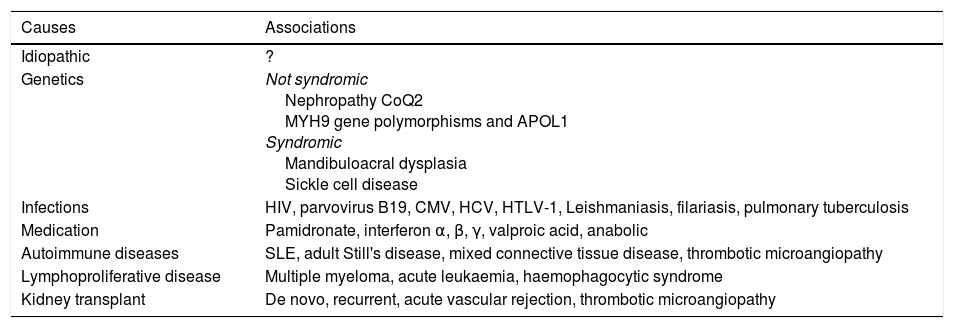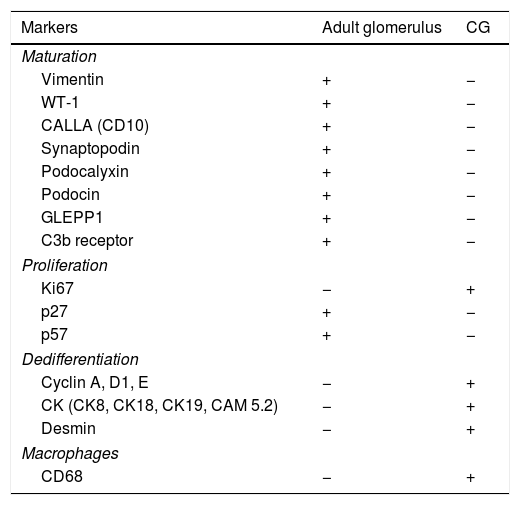Collapsing glomerulopathy (CG) is a rare entity as a glomerular disease. Although it has been considered as a variant of focal segmental glomerulosclerosis, the fact is that the podocyte lesions show different features with respect to the typical focal segmental glomerulosclerosis, an aspect that has been attributed to a type of podocytopathy. In CG, the podocyte lesion is typically characterised by a dysregulated podocyte phenotype, reflected by the loss of expression of mature podocyte markers. CG can be a primary disease or it can be associated with several causal factors that develop a common histopathological entity. The clinical expressiveness of CG is often characterised by the presence of a nephrotic syndrome and a rapid deterioration of the renal function than other variants of the focal segmental glomerulosclerosis. The prognosis of these patients is a rapid progression towards end-stage renal disease with poor response to treatment.
La glomerulopatía colapsante (GC) es una entidad poco frecuente como enfermedad glomerular. A pesar de ser considerada como una variante de la glomeruloesclerosis segmentaria y focal, lo cierto es que las lesiones podocitarias presentan rasgos diferenciales respecto a la glomeruloesclerosis segmentaria y focal típica, aspecto que le ha otorgado su clasificación como un tipo de podocitopatía. En la GC la lesión podocitaria se caracteriza típicamente por una desdiferenciación fenotípica, reflejada por la pérdida de la expresión de marcadores podocitarios maduros. La GC puede ser una enfermedad primaria o puede estar asociada a diversos factores causales que desarrollan una entidad histopatológica común. La expresividad clínica de la GC a menudo se caracteriza por la presencia de un síndrome nefrótico y un rápido deterioro de la funcional renal superior a otras variantes de la glomeruloesclerosis segmentaria y focal. El pronóstico de los pacientes afectados por una GC es una rápida progresión hacia la insuficiencia renal terminal con mala respuesta al tratamiento.












